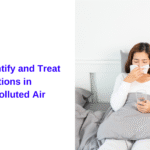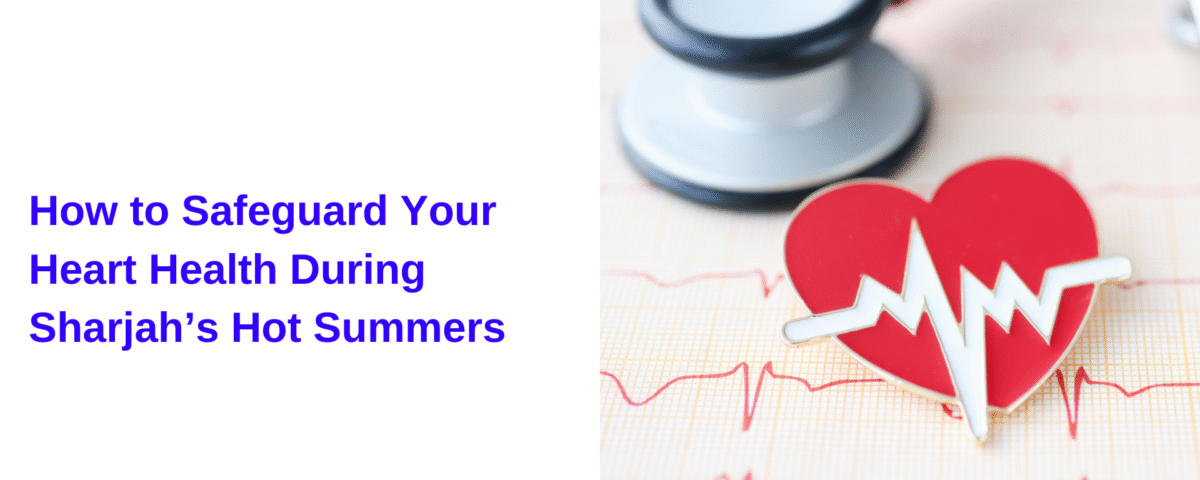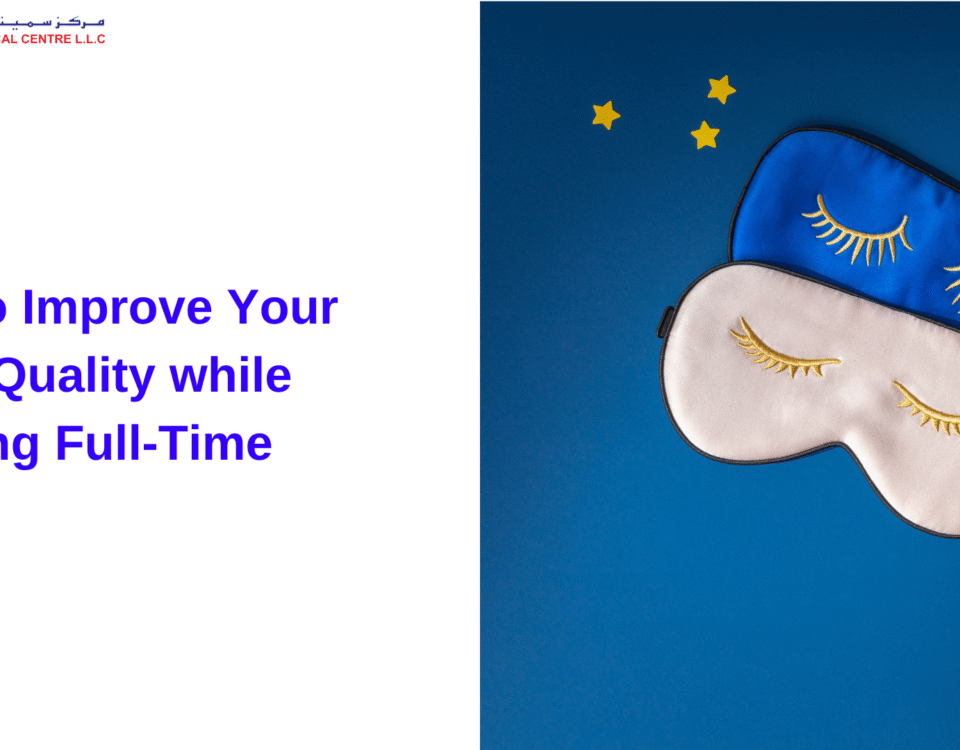
How to Identify and Treat Sinus Infections in Sharjah’s Polluted Air
April 24, 2025
Asthma and Pollution in Sharjah: How to Protect Yourself and Manage Symptoms
May 5, 2025How to Safeguard Your Heart Health During Sharjah’s Hot Summers

People living in or moving to the region often experience recurrent respiratory issues, and sinusitis is one of the most common complaints.
If you’ve ever experienced facial pressure, nasal congestion, or persistent headaches without a cold, it could be more than seasonal allergies. It could be a sinus infection triggered or worsened by polluted air.
Here is a complete guide to recognizing and managing sinus infections effectively.
What is a Sinus Infection?
A sinus infection, or sinusitis, occurs when the tissue lining the sinuses becomes inflamed or swollen. Normally filled with air, the sinuses can get blocked and fill with fluid, allowing bacteria, viruses, or fungi to grow and cause infection.
There are different types of sinusitis:
- Acute Sinusitis: Lasts up to four weeks, typically caused by a viral infection.
- Subacute Sinusitis: Persists for four to twelve weeks.
- Chronic Sinusitis: Lasts more than twelve weeks and may recur frequently.
- Recurrent Sinusitis: Several episodes of acute sinusitis in one year.
Common Symptoms of Sinus Infections
Recognizing sinus infection symptoms early can help prevent complications. Watch for these common indicators:
- Facial pressure or pain around the eyes, forehead, or cheeks
- Nasal congestion and difficulty breathing through the nose
- Thick nasal discharge, often yellow or green
- Decreased sense of smell or taste
- A headache that worsens when bending forward
- Fever, fatigue, or ear pain
- Bad breath or a persistent cough
The Link Between Polluted Air and Sinus Infections
Polluted air in Sharjah often contains dust, chemicals, allergens, and other irritants. These particles can inflame nasal passages, weaken sinus defenses, and increase susceptibility to infection.
Airborne irritants in Sharjah include:
- Dust and sand from construction sites and desert storms
- Vehicle emissions and industrial pollutants
- Mold and indoor air contaminants in poorly ventilated spaces
People with allergies or asthma are especially vulnerable, but even healthy individuals can develop sinus issues due to constant exposure.
Diagnosing a Sinus Infection: When to Seek Help
Self-diagnosis is risky. While mild sinus infections may clear up with rest and fluids, prolonged or severe symptoms should be evaluated by a medical professional.
A healthcare provider may perform:
- A physical exam of your nose and face
- Nasal endoscopy to inspect inside the sinuses
- Imaging tests, like a CT scan if symptoms are chronic or complex
- Nasal or throat swabs to identify bacterial or fungal infections
Early diagnosis ensures appropriate treatment and helps avoid complications like sinus abscesses or chronic inflammation.
Effective Treatments for Sinus Infections
Treatment depends on the type and cause of the infection. Here are the most commonly recommended medical and home-based treatments:
Medical Treatments:
- Decongestants: Relieve nasal swelling and improve drainage.
- Antibiotics: Used only for bacterial sinus infections after proper diagnosis.
- Nasal corticosteroids: Reduce inflammation in chronic or allergic cases.
- Antihistamines: Useful for allergy-triggered sinus infections.
- Saline nasal sprays: Cleanse nasal passages and reduce dryness.
At-Home Care:
- Use a warm compress on the face to ease pain.
- Stay hydrated to thin mucus and promote drainage.
- Inhale steam or use a humidifier to relieve nasal pressure.
- Avoid allergens and polluted environments when possible.
Comparing Sinus Infection Types
Here is a quick comparison table to understand how the different sinusitis types differ:
Type of Sinusitis | Duration | Common Causes | Recommended Action |
Acute Sinusitis | Up to 4 weeks | Viruses, colds | Rest, hydration, decongestants |
Subacute Sinusitis | 4 to 12 weeks | Persistent infection | Consult a doctor if unresolved |
Chronic Sinusitis | 12 weeks or more | Allergies, polyps | Long-term medical care |
Recurrent Sinusitis | 4+ times per year | Multiple triggers | Full diagnostic workup |
Preventing Sinus Infections in Sharjah
Prevention is especially important in Sharjah, where air quality can fluctuate drastically. Here are effective steps to reduce your risk:
- Wear a mask during dust storms or in high-traffic areas.
- Use air purifiers at home to reduce indoor pollutants.
- Keep nasal passages moist with saline sprays.
- Schedule regular check-ups if you have a history of sinusitis or allergies.
- Avoid smoking or exposure to second-hand smoke.
Conclusion:
Sinus infections can significantly affect your quality of life, especially in environments with poor air quality. By understanding the signs, knowing when to seek help, and taking preventive measures, you can protect your respiratory health and stay one step ahead of sinus problems. Consult Sameena Medical Centre, Sharjah for a comprehensive evaluation and treatment of sinus infections.





